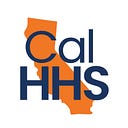Keeping Californians Covered While Transforming Medi-Cal
Op-ed by Jacey Cooper, California’s State Medicaid Director & Chief Deputy Director for Health Care Programs at the Department of Health Care Services
California is facing one of the most significant crossroads in health care access since the implementation of the Affordable Care Act more than a decade ago. Building on our legacy of ensuring access to quality and affordable health care, California is tackling the enormous task of reviewing the eligibility of 15 million Medi-Cal members (17% of the nation’s Medicaid population), more than any other state in the country. And we are using this moment to implement changes that will make it easier for people to get and stay covered now and in the years ahead.
After three years of the federal government temporarily waiving annual Medi-Cal renewal requirements due to COVID-19, the eligibility review process began again in June.
In California, we are simultaneously enrolling newly eligible individuals, renewing current members, and providing resources to smoothly transition those no longer eligible for Medi-Cal to another source of affordable health coverage. While every state is facing this challenge, California’s size, diversity, and commitment to ensuring health coverage for all makes this an unprecedented task.
We all have family, friends, and neighbors who get health insurance through Medi-Cal, which covers more than 33% of Californians, including 50% of all births, a majority of school-aged children, and 75% of long-term care recipients in the state. It enables low-income children and adults, including parents, individuals with disabilities, and senior citizens, to access doctor visits, screenings, prescriptions, mental health care, substance use treatment, and other vital health care services to get and stay healthy. And it provides access to Community Supports services, which range from housing services to asthma remediation and medically-tailored meals.
In California, we are working hard to use every tool we have to make sure people remain covered through Medi-Cal. Keeping eligible Medi-Cal members enrolled in coverage provides them with access to comprehensive health care benefits; reduces pressure on emergency or urgent care services because people are empowered to seek care earlier; and ultimately helps support the overall productivity and success of our state.
To help Medi-Cal members maintain their coverage and learn about the restarted redetermination process of years of pause, the Department of Health Care Services (DHCS) is deploying a wide range of outreach strategies:
1) Our Coverage Ambassadors, a network of 3,500 trusted messengers in communities statewide, are helping to spread the word about Medi-Cal renewals.
2) We are providing $140 million in grants to more than 150 community-based organizations to serve as health enrollment navigators, providing linguistically and culturally appropriate assistance to help families complete the renewal process.
3) For the first time, we are directly emailing and texting members with important updates about their renewal month and deadlines to respond.
4) And to reach people where they’re at, we are enlisting the help of health plans and we signed data use agreements with 220 Local Educational Agencies that will be assisting with outreach and application activities for school children enrolled in Medi-Cal as students return to school.
These efforts are paying off.
More than 81% of the Medi-Cal members eligible for June renewal initiated or completed the process. Our member contact information is more up to date than ever, with returned mail reduced by a third. In fact, current projections show that overall Medi-Cal retention will be higher now than pre-pandemic.
Based on the Kaiser Family Foundation’s Medicaid Enrollment and Unwinding Tracker, to date, California has a lower percentage of program disenrollments than other states. And our ongoing partnership with Covered California is making it as easy as possible for individuals without job-based coverage to automatically enroll in a quality, affordable plan.
To ensure transparency, we are posting demographic and geographic data on enrollments, application processing, renewals, and renewal outcomes on a monthly basis so that all those engaged in this work with us understand what’s happening and what needs to be done. We are committed to remaining nimble by actively monitoring the process and adjusting plans based on what we learn.
These are historic commitments, even for a state like California.
We know there is much more to do to enroll newly eligible individuals and seamlessly transition those who no longer qualify to new forms of coverage.
It will take time and ongoing partnership from communities, counties, and organizations across our state.
Together, we are making sure to use this moment wisely, strengthening the program along the way, so all Californians can get and keep health coverage today and in the years to come.
Jacey Cooper is California’s State Medicaid Director and Chief Deputy Director for Health Care Programs for the Department of Health Care Services. As State Medicaid Director, she represents California’s Medicaid program (Medi-Cal) with federal partners at the Centers for Medicare & Medicaid Services.
